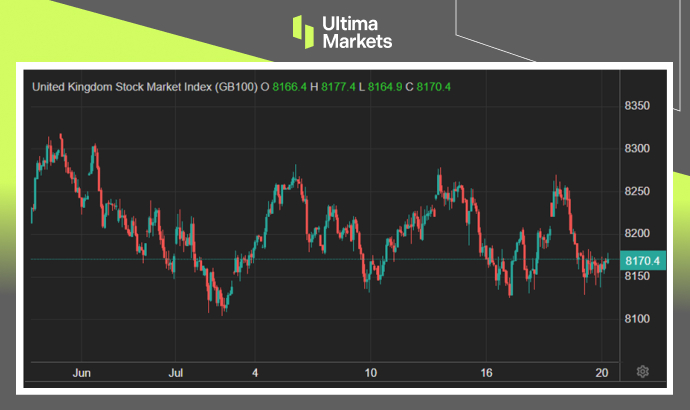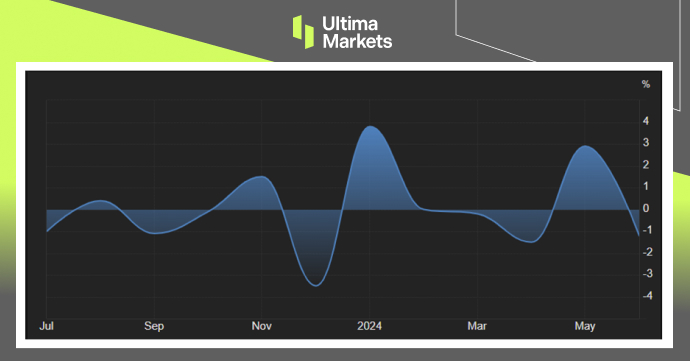Important Information
This website is managed by Ultima Markets’ international entities, and it’s important to emphasise that they are not subject to regulation by the FCA in the UK. Therefore, you must understand that you will not have the FCA’s protection when investing through this website – for example:
- You will not be guaranteed Negative Balance Protection
- You will not be protected by FCA’s leverage restrictions
- You will not have the right to settle disputes via the Financial Ombudsman Service (FOS)
- You will not be protected by Financial Services Compensation Scheme (FSCS)
- Any monies deposited will not be afforded the protection required under the FCA Client Assets Sourcebook. The level of protection for your funds will be determined by the regulations of the relevant local regulator.
Note: UK clients are kindly invited to visit https://www.ultima-markets.co.uk/. Ultima Markets UK expects to begin onboarding UK clients in accordance with FCA regulatory requirements in 2026.
If you would like to proceed and visit this website, you acknowledge and confirm the following:
- 1.The website is owned by Ultima Markets’ international entities and not by Ultima Markets UK Ltd, which is regulated by the FCA.
- 2.Ultima Markets Limited, or any of the Ultima Markets international entities, are neither based in the UK nor licensed by the FCA.
- 3.You are accessing the website at your own initiative and have not been solicited by Ultima Markets Limited in any way.
- 4.Investing through this website does not grant you the protections provided by the FCA.
- 5.Should you choose to invest through this website or with any of the international Ultima Markets entities, you will be subject to the rules and regulations of the relevant international regulatory authorities, not the FCA.
Ultima Markets wants to make it clear that we are duly licensed and authorised to offer the services and financial derivative products listed on our website. Individuals accessing this website and registering a trading account do so entirely of their own volition and without prior solicitation.
By confirming your decision to proceed with entering the website, you hereby affirm that this decision was solely initiated by you, and no solicitation has been made by any Ultima Markets entity.
I confirm my intention to proceed and enter this website Please direct me to the website operated by Ultima Markets , regulated by the FCA in the United Kingdom
Ultima Markets App
Trade Anytime, Anywhere

UK Retail Sales Slump as FTSE 100 Ends Winning Streak
The FTSE 100 fell 0.6% on Friday, ending two weeks of gains. Weaker commodity prices and a drop in domestic retail sales drove this decline. Mining stocks were particularly affected, with precious metal miners falling by 0.8% and industrial metal miners decreasing by 1.7%. Fresnillo, a notable precious metal miner, saw a 1.4% decline as gold prices dropped.
The mining sector’s struggles were largely due to falling copper, gold, and other metals prices. These price declines were influenced by reduced demand from China and expectations of a US interest rate cut. Copper prices, in particular, hit a three-month low.
The retail sector also faced challenges, with personal goods stocks declining by 5.3% and retail stocks falling by 0.3%. Despite the broader market decline, there was a bright spot in the aerospace and defense sector, which gained 0.7%. The increase followed discussions between British defense firms and Ukrainian President Volodymyr Zelenskiy about increasing military support.

(FTSE 100 Index Monthly Chart)
UK retail sales declined 1.2% month-over-month in June 2024, following May’s 2.9% rise and surpassing forecasts of a 0.4% fall. The drop was attributed to election uncertainty, poor weather, and low footfall. Non-food stores decreased by 2.1%, food stores by 1.1%, and online spending by 2.7%.
Over the three months to June, retail sales contracted 0.1%. Year-on-year figures showed a 0.2% decline, contrasting with May’s revised 1.7% rise and missing the expected 0.2% gain.
The unexpected retail slump impacted monetary policy outlooks. The probability of an August interest rate cut by the Bank of England rose to 43%, up from 39% a day earlier. The weak retail performance indicates a softening consumer sector, potentially influencing upcoming economic and monetary decisions in the UK.

(UK Retail Sales MoM%,Office for National Statistics)
Disclaimer
Comments, news, research, analysis, price, and all information contained in the article only serve as general information for readers and do not suggest any advice. Ultima Markets has taken reasonable measures to provide up-to-date information, but cannot guarantee accuracy, and may modify without notice. Ultima Markets will not be responsible for any loss incurred due to the application of the information provided.
Why Trade Metals & Commodities with Ultima Markets?
Ultima Markets provides the foremost competitive cost and exchange environment for prevalent commodities worldwide.
Start TradingMonitoring the market on the go
Markets are susceptible to changes in supply and demand
Attractive to investors only interested in price speculation
Deep and diverse liquidity with no hidden fees
No dealing desk and no requotes
Fast execution via Equinix NY4 server









